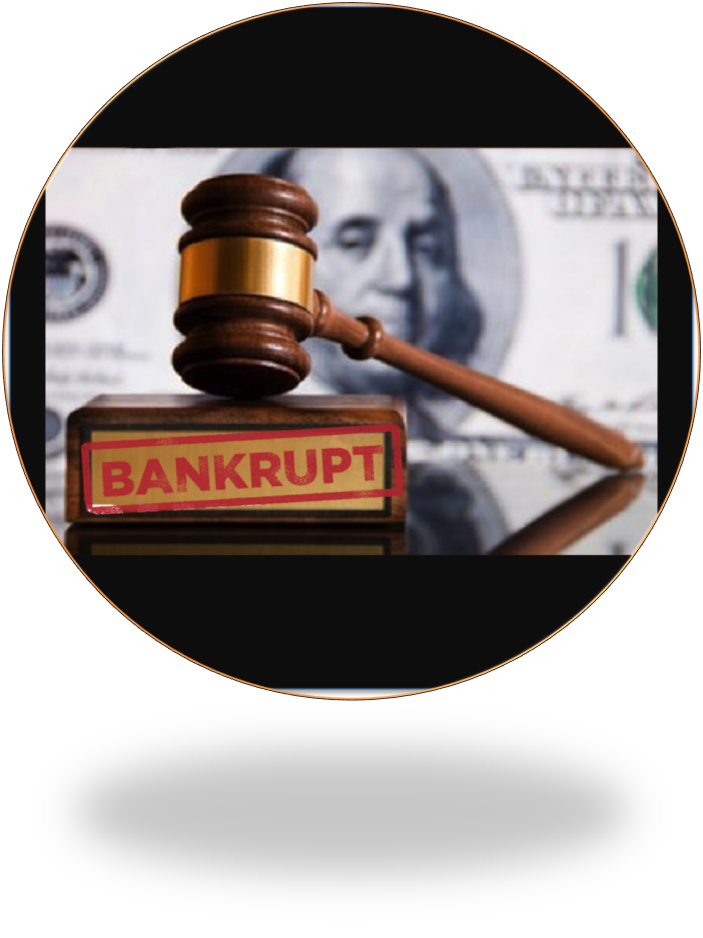Bankruptcy
Resolve financial burdens and get a fresh start.

We handle bankruptcy cases and closely related matters
The law offices of Salvatore F. Lanza, we protect the rights of individual debtors and small businesses throughout the Central New York Region through the effective use of the Bankruptcy Code and related federal and state (New York) statutes. We devote ourselves to helping clients obtain the maximum available Debt Relief.
-
-
“IMPORTANT”
Financial stress can create enormous anxiety. Bankruptcy should reduce your anxiety, but all too often, other attorneys do not clearly explain its benefits. With our team, you meet and converse with the actual attorney who represents you. Your attorney clearly and concisely explains what you can expect throughout the bankruptcy process. Understanding the process ahead is the first step to getting your finances and emotions under control.
-
Bankruptcy & Debt
Clear, high-quality debt and bankruptcy advice
-
- Stop foreclosure — The foreclosure process in New York is extremely technical and lengthy, which provides ample ammunition for a foreclosure defense. Throughout the process, the homeowner has numerous opportunities to cure the default, identify a mistake in the process, negotiate loan modifications with lenders and, in appropriate circumstances, eliminate second and third mortgages in Chapter 13. While the automatic stay stops foreclosure under all Bankruptcy Chapters, Chapter 13 is typically better suited to effectively address the issues presented by the foreclosure process.
- Stop repossession — Repossession of a vehicle or other property is a traumatic event. The bankruptcy options generally available are surrendering the vehicle, reaffirming the loan, redeeming the vehicle or working out a modification with your lender. Each Bankruptcy Chapter offers its own set of options for dealing with car loans that will be discussed with you.
- Stop wage garnishment — Wage garnishment is embarrassing and can exacerbate your debt problems by reducing your net income. We help put a stop to your wage garnishment.
- Stop credit card debt — As an unsecured debt, credit card debt can be handled by either Chapter 7 or Chapter 13. However, many think this means that they can max their cards before filing. This is not permitted under the bankruptcy code. Bankruptcy fraud and abuse such as this can have serious consequences, including the dismissal of your claim without a discharge of your debts.
- Protect assets — Our approach considers not only eliminating your debt, but also protecting your assets. We will advise you which assets are exempt and devise a strategy for dealing with any non-exempt assets.
- Business bankruptcy — Chapter 11 bankruptcy for businesses allows businesses to reorganize and reduce their debt burden.
We have substantial expertise representing CNY clients in the following:
- Chapter 7 Bankruptcy — which involves the elimination of credit card debt, medical debt and unsecured loans, and can be used to “walk away” from mortgage loans and car loans that are no longer affordable.
- Chapter 13 Bankruptcy — which is most commonly used to save your house from foreclosure and involves repaying your past due mortgage payments and other debt, including property and school taxes, over a period of time with manageable monthly payment. In appropriate circumstances Chapter 13 can eliminate 2nd and 3rd mortgages on your home and, when combined with the Bankruptcy Court’s Loss Mitigation Program, provides a homeowner with the best chance to save their house.
- Chapter 11 Bakruptcy — which involves a business remaining in possession of its assets and continuing its operations while at the same time reorganizing and restructuring its debt
- Bankruptcy Litigation — when creditors get too far out of line, sometimes you have to sue them to hold them accountable
- Mortgage Modification — in the Bankruptcy Court’s Loss Mitigation program, the Bankruptcy Judge supervises the mortgage modification process, often resulting in a speedier resolution
– Wikipedia
Bankruptcy is a legal process through which people or other entities who cannot repay debts to creditors may seek relief from some or all of their debts. In most jurisdictions, bankruptcy is imposed by a court order, often initiated by the debtor.
Bankrupt is not the only legal status that an insolvent person may have, and the term bankruptcy is therefore not a synonym for insolvency.
Considerations
Making the decision to file for bankruptcy is a big step. There is so much to consider — evaluating all your options, understanding what bankruptcy will do for you (and what it won’t do), and preparing for the consequences of filing for bankruptcy. If you have already made up your mind to go the bankruptcy route, you might be wondering about how bankruptcy works and what steps you need to take.
Process
Meet with our attorney to discuss your case.
Fulfill the mandatory pre-bankruptcy requirements.
Compile documentation and submit filing to the court.
Elect for liquidation or repayment.
Complete debtor education course.
Receive debt discharge as determined by the court.
Begin rebuilding your credit.
About Discharge
Eligible debts are discharged. Bankruptcy wipes away your debt and removes your obligation to pay creditors included in the bankruptcy. If the weight of your debt has been causing you to have sleepless nights, the discharge will most likely bring you some relief. Just remember, however, that the discharge isn’t the end of your journey. Bankruptcy can remain on your credit report for up to 10 years and lower your ability to obtain credit.
Let's Work Together

